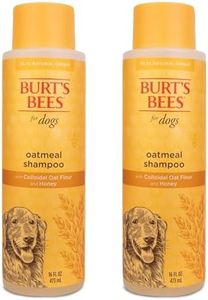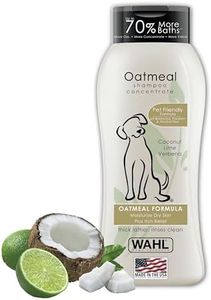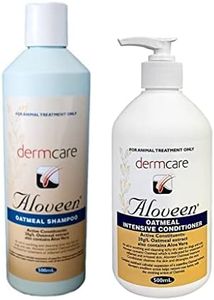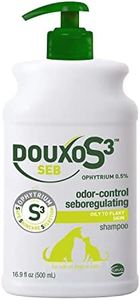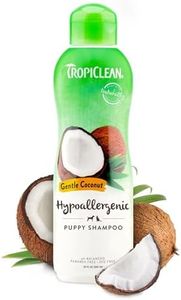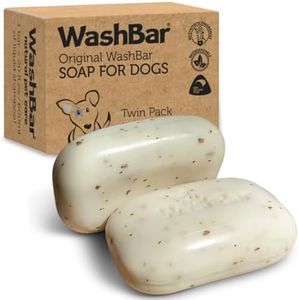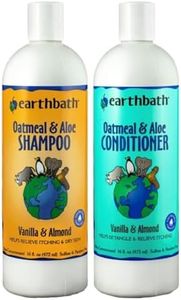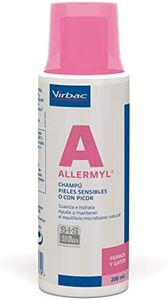We Use CookiesWe use cookies to enhance the security, performance,
functionality and for analytical and promotional activities. By continuing to browse this site you
are agreeing to our privacy policy
10 Best Dog Allergy Shampoos
From leading brands and best sellers available on the web.By clicking on a link to a third party's website, log data is shared with that third party.
Buying Guide for the Best Dog Allergy Shampoos
When choosing a dog-allergy shampoo, the goal is to find a product that soothes your dog's skin, reduces allergic reactions, and supports overall coat health. Carefully reviewing a few essential features and matching them to your dog's specific needs—such as skin sensitivity, length of hair, and any existing allergies—will help ensure you select the best shampoo for your pet.Hypoallergenic FormulaA hypoallergenic dog shampoo is specially designed to minimize the risk of triggering allergies, both in dogs and their human companions. This spec is important because it signifies that the product is less likely to cause irritation. When choosing, look for shampoos clearly labeled as hypoallergenic. Some are made with only basic, gentle ingredients, and should be fragrance-free or contain very mild scents. For mild sensitivities, a general hypoallergenic formula might be enough, but for dogs with severe allergies or skin conditions, pick a shampoo with the shortest ingredient list and absolutely no added dyes or perfumes.
IngredientsIngredients determine how gentle and effective a shampoo is on your dog's skin. It's important because the wrong ingredients can aggravate allergies or cause irritated skin. Natural ingredients like oatmeal, aloe vera, chamomile, or coconut oil are known for their soothing qualities. Some shampoos contain essential oils or herbal extracts, which may be helpful for some dogs but problematic for others. If your dog has a history of skin sensitivities, select a shampoo with mostly natural ingredients and avoid those with alcohols, sulfates, parabens, or artificial dyes.
Moisturizing PropertiesMoisturizing is crucial for dogs with allergies because irritated skin often becomes dry or flaky. Moisturizing shampoos help maintain healthy skin and prevent itchiness. Shampoos vary from basic cleansers to those with built-in conditioners or added moisturizing agents such as colloidal oatmeal, aloe, or shea butter. If your dog has dry or flaky skin, seek shampoos with clearly highlighted moisturizing benefits; for normal skin, a lighter, standard moisturizing shampoo will suffice.
pH BalanceThe pH balance of a shampoo refers to how acidic or alkaline it is. Dog skin is different from human skin and requires a specific pH (usually more neutral to slightly alkaline). Using a product with the wrong pH can disrupt your dog's skin barrier and worsen allergies. Look for shampoos that specifically state they are pH-balanced for dogs. If your dog has ongoing skin issues or you notice redness after baths, ensuring correct pH balance becomes even more important.
FragranceFragrance is added to make shampoos smell pleasant, but artificial fragrances can sometimes trigger allergies or mask the smell of strong chemicals. Unscented or mildly scented shampoos are best for dogs with allergy-prone or sensitive skin. If your dog or household suffers from frequent allergies, choose fragrance-free options; otherwise, opt for products using only light, natural scents.
Type of Coat or Skin ConditionDifferent coat lengths and types—as well as specific skin conditions (like dermatitis or hot spots)—may require specific shampoos. Some products are formulated for long or double coats, while others are crafted for sensitive or inflamed skin. If your dog has a thick or long coat, seek a shampoo that rinses easily and helps detangle. If your dog has specific skin problems, look for a shampoo targeted for those issues; if unsure, choose an all-purpose allergy shampoo suitable for most dogs.
